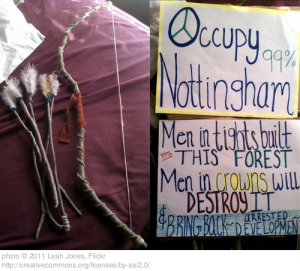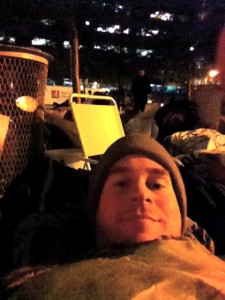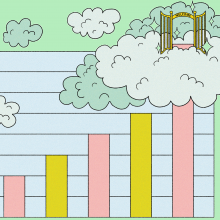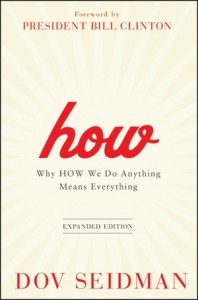financial
AS WE APPROACH the new year, the more fortunate among us will be taking time to organize their lives by rebalancing their financial portfolios and considering new investments. While taking care of your cash, it’s important to remember that a wise teacher once said, “Store up for yourselves treasures in heaven, where moths and vermin do not destroy.” I still don’t know what vermin is (it’s probably bad because it’s in the same sentence as moths), but I think the teacher might have been telling us that in additionto tending to our finances, we should also tend to our spiritual portfolios.
If you’re wondering about how exactly to do this, here are three rules to spiritual wealth that I think will prove helpful.
The Lord has appointed me to bring good news ... to bind up the broken-hearted, to proclaim liberty to the captives, and release to the prisoners. —Isaiah 61:1; Luke 4:18
APRIL'S BIRACIAL DAUGHTER Erin has a drug problem. Heartbroken, “April” has watched “Erin” negotiate the prison system for the past 17 years. Now age 44, Erin has been in and out of five prisons and four jails, totaling almost eight years—all on drug-related charges.
On any given day in the United States, at least 137,000 men and women are in prisons or jails for drug use or possession, with thousands more spending extended periods on probation and parole. Why have rates of drug use (excluding opioids) not changed significantly despite more than four decades of the so-called war on drugs? Why are so many punished by incarceration for an activity that does not directly harm others?
In fall 2016, I was looking for volunteer opportunities in retirement. Having worked with a prisoner-release program in Canada, I wanted to pursue criminal justice issues again. In Harrisonburg, Va., I discovered the Valley Justice Coalition, a local group concerned about reducing incarceration and recidivism in Harrisonburg and surrounding Rockingham County.
With 2.2 million inmates, “no other country in the world imprisons its citizens like we do,” says Craig Haney, a professor of psychology at the University of California. Currently, 670 per 100,000 persons are incarcerated in the U.S., compared with 60 to 200 persons per 100,000 in other Western countries. This prison boom has led to annual spending of $72.5 billion on corrections.
Brother Fink received his 87-year sentence in 1990, when he was 34. The former parole system had offered incentives so that a sentence could be reduced. With cooperative behavior and attending educational programs, prisoners could earn “good time credits,” so Brother Fink diligently complied. But by the mid-1980s, many states had passed “truth-in-sentencing” laws that required prisoners to serve higher percentages (typically 85 percent) of their already long sentences, followed in the ’90s by “tough on crime” policies.
Now state prisons in the U.S. face an exploding elderly population. Between 1993 and 2013, the number of prisoners 55 years or older, serving sentences of one year or longer, increased 400 percent, to 131,500. If this trend continues, by 2030 a third of all inmates will be elderly, escalating the need for geriatric facilities and staffing, with costs twice that of younger inmates. The Osborne Association, which works with older prisoners and their families, estimates current annual spending at $16 billion for inmates aged 50 and older, warning that without decisive action the criminal justice system is at risk of collapsing under its own weight.
After serving 28 years, might Brother Fink be eligible for parole? Sadly, the Virginia parole board denies most releases, currently approving only 6 percent. Brother Fink has had 11 parole interviews, receiving three-year deferrals, including two geriatric turndowns.
As of October 2016, the backlog of prisoners eligible for parole in Virginia numbered 2,765, costing the state more than $77 million annually. Given this backlog and the seriousness of Brother Fink’s crimes, what are his chances for release at his next parole hearing? Then multiply Brother Fink by more than 100,000 elderly prisoners across the nation, who are some of the most rehabilitated and most infirm in the system, thus posing the least threat to public safety.
I love Dave Ramsey’s Financial Peace coursework. It put our family on stable financial footing years ago, and Amy and I never fight about financial matters any more. We find plenty of other things to fight about, but that’s a different post, I suppose.
Ramsey has come under fire recently for a list of “Rich People Habits” he posted on his blog. The list was compiled by Tom Corley at a site called RichHabitsInstitute.com, which is intended to track what people of means do differently in daily life than the rest of us (aside from brush their teeth with platinum-bristled brushes, since that one’s a given).
On the one hand, I’ll agree that observing a cohort of people you want to emulate and learning from their habits makes a lot of sense, but I can see why Ramsey and Corley have caught so much heat for comparing habits of “poor people” with those of the wealthy.
There are two problems that I see. First, though Ramsey tends to be an advocate for the poor with regard to pushing back against usury lending and the like, he draws many false correlations between the habits listed below and the fact that folks who practice them are in poverty. In fact, in a recent defense of the post, Ramsey reiterated this point, writing, “This list simply says your choices cause results. You reap what you sow.”
The other concern the list raises for me is that it appears to be blind to the inherent privilege linked to the habits, as if all people had equal access to such practices and resources. Not so, Dave. Below I’ve shared several of the 20 habits on the original list (which can be found here), followed by my thoughts on where they fall short.

With the opening of the G20 Summit in Cannes, France today, an idea that's been around for awhile is in the news again and gaining more attention as a result of the #OWS movement: The so-called "Robin Hood tax," a minimal tax on all financial transactions with the resulting revenue dedicated to anti-poverty programs....Archbishop of Canterbury Rowan Williams, in his response to the occupation of St. Paul's Cathedral in London, endorsed the Vatican proposals. Williams observed that "people are frustrated beyond measure at what they see as the disastrous effects of global capitalism," and urged a full debate on "a Financial Transaction Tax
Social justice index: USA No. 27 of 31. Democrats in Congress attempt to eat on $4.50 a day to protest potential budget cuts. Republicans shift focus from jobs to God. OpEd: Obama, the G20 and the 99 percent. In Congress, the rich get richer. The Shadow Superpower. And the U.S. sues South Carolina over immigration law.
Finally, as President Obama has announced, this American war will soon be over, with most of the 44,000 American troops still in Iraq coming home in time to be with their families for Christmas.
The initial feelings that rushed over me after hearing the White House announcement were of deep relief. But then they turned to deep sadness over the terrible cost of a war that was, from the beginning, wrong; intellectually, politically, strategically and, above all, morally wrong.
The War in Iraq was fundamentally a war of choice, and it was the wrong choice.
 For whatever stereotype you might have in your mind about who the so-called Occupiers might be, there are some people who fit it, and whole lot more who don't.
For whatever stereotype you might have in your mind about who the so-called Occupiers might be, there are some people who fit it, and whole lot more who don't.
I traveled from Washington, D.C., to Wall Street late Wednesday because I believe it's often easier to find God on the streets than in a sanctuary.
We serve a God who shows up for those in need, and for those who stand with them.
The new movement called Occupy Wall Street now has spread across the country, from the very seats of our political and financial power and our largest cities, to suburbs and small towns. In some communities small groups of a few dozen have formed and in some cities thousands have gathered.
In each instance, no matter the size, people's frustrations, hurt and feelings of being betrayed by our nation's politicians and economic leaders are clear and they want to be heard.
We will likely see images and hear things that will offend us and some that will inspire.
We'll hear demands that we agree with and some that we don't.
And that's OK.



